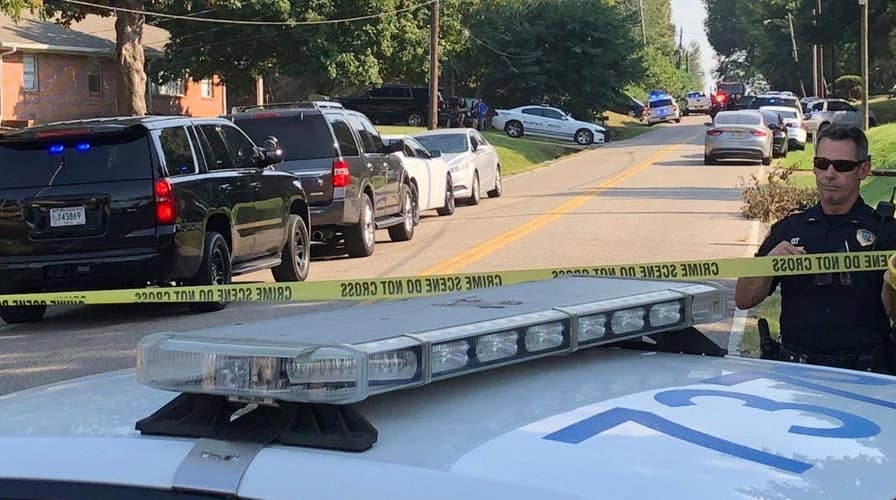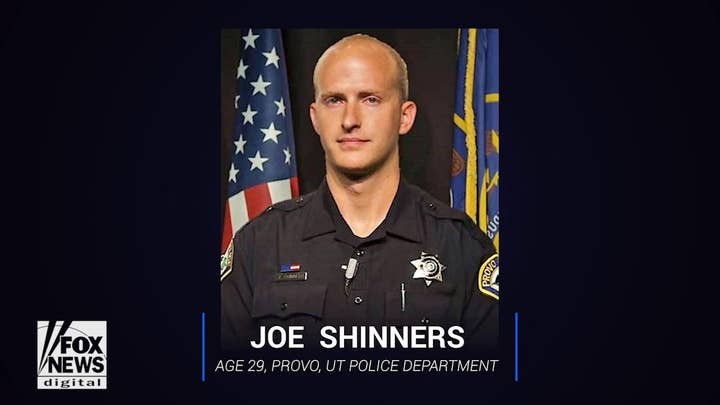Police advocates say it's time to stop the 'demagoguery' and back America's men and women in blue
Dr. Darrin Porcher, Steve Kardian and Chief Lisa Parker on recent shootings of police officers.
The New York Times opinion page condemned America's police forces on Thursday, with a blistering op-ed accusing law enforcement of filling prisons at all costs, despite severe overcrowding.
The piece, entitled: "The Police Can’t Solve the Problem. They Are the Problem," was written by attorneys Derecka Purnell and Marbre Stahly-Butts and focuses on the 1994 crime bill signed into law by then-President Bill Clinton.
"The reality is this: The police fill prisons," the authors wrote. "We can’t repair the harm that the 1994 crime bill has done by promoting mass incarceration without reducing the size and scope of the police."
Purnell and Stahly-Butts decried the 100,000 new police officers the crime bill commissioned and claimed the surge only helped reduce overall crime by 1.3 percent. They also noted a 26 percent drop in overall crime from 1993-2000 but were unwilling to credit law enforcement, instead attributing the drop to pre-school and job programs.
The authors also cited New York City Mayor Bill de Blasio's plan to close Rikers Island prison by 2026 and hailed the move as the proper next step.
MINNEAPOLIS OFFICER BLAMES CITY'S 'ULTRA-LEFT AGENDA' FOR FAILURE TO ADD COPS TO COMBAT CRIME SPREE
"Politicians promise jail closings even as they increase police budgets — and, as a result, arrests. Mayor Bill de Blasio of New York has acknowledged that the 1994 crime bill was a mistake and wants the city’s Rikers Island jail to close by 2026," the story reads. "Yet New York's transportation agency just announced a plan to hire 500 police officers to combat fare evasion and manage homeless people in the subway"
More from Media
The article used the topic of incarceration to slam President Trump's recently signed criminal justice reform bill and accused the White House and Congress of not going far enough. It also claimed over 150 black-led groups were against the legislation.
"Reformers on both sides of the aisle praised President Trump for signing the First Step Act last year as a measure toward ending mass incarceration. The act is a modest, underfunded criminal justice reform package that a coalition of over 150 black-led organizations opposed," they wrote.
"Last week, White House economists announced a plan to use the police to get homeless people 'off the street.' This direction is misguided. Police officers cannot solve underlying causes of homelessness or other social problems. They can only temporarily manage these issues with punishment and more violence."
The story continued to target police and accused them of defaulting to excessive force while failing to protect the most "vulnerable" among us.
DAN BONGINO SAYS 'FAILED COMMUNIST MAYOR' BILL DE BLASIO IS PUTTING COPS IN DANGER
"The police do not help vulnerable populations — they make populations vulnerable. Excessive force is the No. 1 investigated complaint against police officers, and sexual violence is the second. People with mental illness are 16 times more likely to be killed by the police," the piece continues.
When Purnell and Stahly-Butts finally offered solutions to the problems they highlighted, they cited the San Francisco school board's decision to limit the amount of police on campus and said society should rely on community organizers to assume the role of first responders.
"Community organizations are working to solve the problems our communities face without putting them in more danger," the authors wrote. "The Oakland Power Projects trains community members in health skills and emergency response practices to reduce reliance on the police."
CLICK HERE TO GET THE FOX NEWS APP
They also lumped in Jim Crow-era oppression with the current level of incarceration and ended the article by labeling cops as jailers who "put people in cages."
"We must reckon with the reality that the police are part of the problem and stop investing money, power and legitimacy in them," the op-ed concluded.
Fox News provided a different take with it's "Blue Lives Lost" project, which charted every officer who was killed in the line of duty this year in an effort to honor the dangerous work carried out by law enforcement.











































